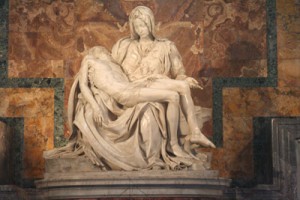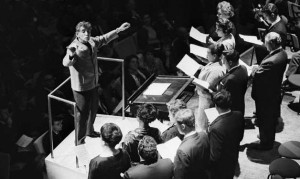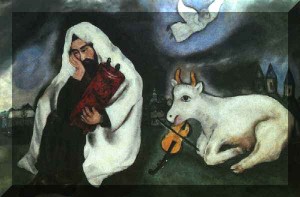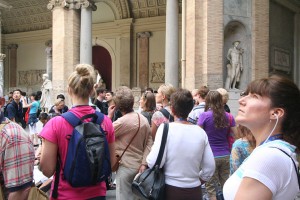Heart of Hope Part 1 – The role of the Cross in the Christian life, suffering, prayer and and how it conquers evil
[powerpress = “deacon-james-keating”]
Deacon James Keating, PhD, the director of Theological Formation for the Institute for Priestly Formation, located at Creighton University, in Omaha, is making available to â€Discerning Hearts†and all who listen, his series of programs entitled “The Heart of Hopeâ€.
This extraordinarily popular series explores the work of suffering in the Christian life and how God can use it to transform the heart of the individual and the world. 
The “Heart of Hope† tackles a very tough subject…the gift of suffering in the Christian life. Deacon Keating guides us well.
.
For more information on the “Institute of Priestly Formation†and for other material available by Deacon Keating, just click here
Don’t forget to pickup a copy of “Communion with Christ†, it is one of the best audio sets on prayer…ever!
Check out Deacon Keating’s “Discerning Heart†page
Tags: catholic, catholic podcast, catholic prayer, Catholic Spirituality, cathollc spirituality, deacon, evil, hope, james keating, prayer, suffering, the cross
This entry was posted on Thursday, September 8th, 2011 at 4:32 pm
You can follow any responses to this entry through the RSS 2.0 feed.
DIALECTIC OF PRAYER: HUMAN CRY AND DIVINE RESPONSE
VATICAN CITY, 7 SEP 2011 (VIS) – This morning Benedict XVI travelled by helicopter
from the Apostolic Palace in Castelgandolfo to the Vatican for his weekly general audience in St. Peter’s Square.
Continuing a series of catecheses on the subject of “the school of prayer”, the Holy Father turned his attention to Psalm 3 which recounts David’s flight from Jerusalem when Absalom rose against him. “In the Psalmist’s lament”, the Pope said, “each of us may recognise those feelings of pain and bitterness, accompanied by faith in God, which, according the biblical narrative, David experienced as he fled from his city”.
In the Psalm, the king’s enemies are many and powerful, and the imbalance between David’s forces and those of his persecutors “justifies the urgency of his cry for help”. Nonetheless his adversaries “also seek to break his bond with God and to undermine the faith of their victim by insinuating that the Lord cannot intervene”.
Thus, the aggression “is not only physical, it also has a spiritual dimension” aimed at “the central core of the Psalmist’s being. This is the extreme temptation a believer suffers: the temptation of losing faith and trust in the closeness of God”, the Holy Father said.
Yet, as the Book of Wisdom says, the unrighteous are mistaken because “the Lord … is like a shield protecting those who entrust themselves to Him. He causes them to raise their heads in sign of victory. Man is no longer alone … because the Lord hears the cry of the oppressed. … This intertwining of human cry and divide response is the dialectic of prayer and the key to reading the entire history of salvation. A cry expresses a need for help and appeals to the faithfulness of the other. To cry out is an act of faith in God’s closeness and His willingness to listen. Prayer express the certainty of a divine presence which has already been experienced and believed, and which is fully manifested in the salvific response of God”.
Psalm 3 presents us “a supplication replete with faith and consolation. By praying this Psalm we share the sentiments of the Psalmist: a just but persecuted figure which would later be fulfilled in Jesus. In pain, danger and the bitterness of misunderstanding and offence, the words of this Psalm open our hearts to the comforting certainty of faith. God is always close, even in times of difficulty, problems and darkness. He listens, responds and saves.
“However”, the Pope added, “it is important to be able to recognise His presence and to accept His ways: like David during his humiliating flight from his son Absalom, like the persecuted righteous of the Book of Wisdom and, finally and fully, like the Lord Jesus on Golgotha. In the eyes of the unrighteous it appeared that God did not intervene and that His Son died, but for believers it was at that precise moment that true glory was manifested and definitive salvation achieved”.
The Pope concluded: “May the Lord give us faith, may He come in aid of our weakness and help us to pray in moments of anguish, in the painful nights of doubt and the long days of pain, abandoning ourselves trustingly to Him, our shield and our glory”.
AG/ VIS 20110907 (550)
PSALM 3 From the New Advent On-line Bible:
1 The psalm of David when he fled from the face of his sonAbsalom.
 hy, OÂ Lord, are they multiplied that afflict me? many are they who rise up against me.
hy, OÂ Lord, are they multiplied that afflict me? many are they who rise up against me.
3 Many say to mysoul: There is no salvation for him in his God.
4 But you, O Lord, are my protector, my glory, and the lifter up of my head.
5 I have cried to the Lord with my voice: and he has heard me from his holy hill.
6 I have slept and have taken my rest: and I have risen up, because the Lord has protected me.
7 I will not fear thousands of the people surrounding me: arise, O Lord; save me, O my God.
8Â For you have struck all them who are my adversaries without cause: you have broken the teeth of sinners.
9 Salvation is of the Lord: and your blessing is upon your people.
Tags: catholic, catholic podcast, catholic prayer, cathollc spirituality, pope benedict, prayer, psalms
This entry was posted on Wednesday, September 7th, 2011 at 7:30 am
You can follow any responses to this entry through the RSS 2.0 feed.
“Blessed are you that weep now, for you shall laugh”
[powerpress=”daily-scripture”]
an excerpt from today’s reflection by Don Schwager:
When you encounter misfortune, grief, or tragic loss, how do you respond? With fear or faith? With passive resignation or with patient hope and trust in God? We know from experience that no one can escape all of the inevitable trials of life – pain, suffering, sickness, and death. When Jesus began to teach his disciples he gave them a “way of happiness” that transcends every difficulty and trouble that can weigh us down with grief and despair. Jesus began his sermon on the mount by addressing the issue of where true happiness can be found. The word beatitude literally means happiness or blessedness. Jesus’ way of happiness, however, demands a transformation from within – a conversion of heart and mind which can only come about through the gift and working of the Holy Spirit.
How can one possibly find happiness in poverty, hunger, mourning, and persecution? If we want to be filled with the joy and happiness of heaven, then we must empty ourselves of all that would shut God out of our hearts. Poverty of spirit finds ample room and joy in possessing God alone as the greatest treasure possible. Hunger of the spirit seeks nourishment and strength in God’s word and Spirit. Sorrow and mourning over wasted life and sin leads to joyful freedom from the burden of guilt and oppression. God reveals to the humble of heart the true source of abundant life and happiness. Jesus promises his disciples that the joys of heaven will more than compensate for the troubles and hardships they can expect in this world. Thomas Aquinas said: “No person can live without joy. That is why someone deprived of spiritual joy goes after carnal pleasures.” Do you know the joy and happiness of hungering and thirsting for God alone?
“Lord Jesus, increase my hunger for you and show me the way that leads to everlasting happiness and peace. May I desire you above all else and find perfect joy in doing your will.”
for the full reflection visit : Daily Reading and Meditation
Tags: beatitudes, catholic, catholic podcast, catholic prayer, cathollc spirituality, don schwager, gospel of luke
This entry was posted on Wednesday, September 7th, 2011 at 12:50 am
You can follow any responses to this entry through the RSS 2.0 feed.
 On this day, September 5, 1997, Mother Teresa of Calcutta died. Oh, I remember that day…it was a week of shocks. First, Princess Di’s death made the news and then Mother Teresa’s…two completely different women, but boy what an impact emotionally their respective deaths had on the hearts of millions.  Yes, one was clearly a saint, the other a wounded icon of the culture. Some will roll their eyes, that I even dared the comparison on this blog spot, but for this now 50 year old woman, this was a big moment and still speaks to my heart  today.Â
On this day, September 5, 1997, Mother Teresa of Calcutta died. Oh, I remember that day…it was a week of shocks. First, Princess Di’s death made the news and then Mother Teresa’s…two completely different women, but boy what an impact emotionally their respective deaths had on the hearts of millions.  Yes, one was clearly a saint, the other a wounded icon of the culture. Some will roll their eyes, that I even dared the comparison on this blog spot, but for this now 50 year old woman, this was a big moment and still speaks to my heart  today.Â
I got up early to watch their funerals, and cried during both. I cried for the Mother of the Poor, whose witness and example I would miss, but who I was sure was brought to the glory of heaven…no doubt!  And I cried for Princess Di. She and I were the same age. I remember getting up to watch her wedding on TV…she really was the People’s Princess; England’s and mine. She was so battle weary from livng and enduring the culture of our times…oh how I wished for her happiness (because then maybe, just maybe, fairytales do come true, and our secret fantasies and longings might come true as well). It broke my heart on occassion to see how miserable she was in how her story-book marriage, and I cheered her on when we watched her persevere while trying to do good for others, whatever the motivation.   It was so sad how her life ended; it was a major reality check for all of us who dreamt of story-book things.
And that’s what was so great about Mother Teresa, somehow she brought us back to reality and showed us what true love really was and what truly fulfills our heart’s deepest desire. She implored all of us to seek Jesus and that the answer to our heart’s longing could be found serving and loving Jesus in our brothers and sisters in need…the poor, the unborn…in actuality, everyone…all of the Father’s children.
And now the woman whose face was on every tabloid, every magazine, every TV screen, every you name it, all the time…Princess Diana… her essence is beginning to fade from our memories, but not so with Mother Teresa. This day now and forever after in the life of the Church will stand as a lasting memorial of Mother Teresa’s  life and work for God’s glory (some think she may even be declared a Doctor of the Church one day).  I don’t even recall the actual date Princess Di died, but I know it’s around Blessed Teresa of Calcutta’s feast day. Interesting…one was a life seeking to  soothe the ache of  love, in someways, through the consumption of the things of the world  (though she so obviously did love her little boys), and another, who’s life was seeking love by renouncing the things of the world and completely giving to others (who on every level did great good, which was the fruit of that renunciation).
soothe the ache of  love, in someways, through the consumption of the things of the world  (though she so obviously did love her little boys), and another, who’s life was seeking love by renouncing the things of the world and completely giving to others (who on every level did great good, which was the fruit of that renunciation).
Very interesting, God’s timing on all this…I love the image of Mother Teresa holding Princess Di’s hand. I’d like to think that this is what Mother Teresa did for Diana on her journey to the Kingdom…that’s the job of saints, ya know…to help us all to get to heaven.
In Mother Teresa’s case, she’s leading many of us from the 20th century and beyond to Jesus and the Gate of Heaven.
No podcasts or videos on this post, just a prayerful hope that both women will one day behold the beatific vision together…one a saint, and one, like the rest of us, hopefully, eventually, a saint in the making. Blessed Teresa of Calcutta, pray for us and for this member of the walking wounded who is still pondering all these things after all these years……
Tags: blessed teresa of calcutta, catholic, catholic podcast, catholic prayer, cathollc spirituality, funerals, mother teresa, mother teresa of calcutta, princess di, princess diana
This entry was posted on Monday, September 5th, 2011 at 6:43 am
You can follow any responses to this entry through the RSS 2.0 feed.
Tags: blessed mother teresa of calcutta, catholic, catholic podcast, catholic prayer, cathollc spirituality
This entry was posted on Monday, September 5th, 2011 at 6:24 am
You can follow any responses to this entry through the RSS 2.0 feed.
Tags: catholic, catholic podcast, catholic prayer, cathollc spirituality, sins of omission
This entry was posted on Sunday, September 4th, 2011 at 7:37 am
You can follow any responses to this entry through the RSS 2.0 feed.
Tags: catholic, catholic podcast, catholic prayer, cathollc spirituality, michaelangelo, Michelangelo, Miguel Angel, Renacentista
This entry was posted on Saturday, September 3rd, 2011 at 9:24 pm
You can follow any responses to this entry through the RSS 2.0 feed.
“Can you make wedding guests fast while the bridegroom is with them?”
[powerpress=”daily-scripture”]
an excerpt from today’s reflection by Don Schwager:
Jesus used an image familiar to his audience – new and old wineskins. In Jesus’ times, wine was stored in wineskins, not bottles. New wine poured into skins was still fermenting. The gases exerted gave pressure. New wine skins were elastic enough to take the pressure, but old wine skins easily burst because they were hard. What did Jesus mean by this comparison? Are we to reject the old in place of the new? Just as there is a right place and a right time for fasting and for feasting, so there is a right place for the old as well as the new. Jesus says the kingdom of heaven is like a householder who brings out of his treasure what is new and what is old (Matthew 13:52). How impoverished we would be if we only had the Old Testament or the New Testament, rather than both. The Lord gives us wisdom so we can make the best use of both the old and the new. He doesn’t want us to hold rigidly to the past and to be resistant to the new work of his Holy Spirit in our lives. He wants our minds and hearts to be like the new wine skins – open and ready to receive the new wine of the Holy Spirit. Are you eager to grow in the knowledge and understanding of God’s word and plan for your life?
“Lord Jesus, fill me with your Holy Spirit, that I may grow in the knowledge of your great love and truth. Help me to seek you earnestly in prayer and fasting that I may turn away from sin and wilfulness and conform my life more fully to your will. May I always find joy in knowing, loving, and serving you.”
for the full reflection visit : Daily Reading and Meditation
Tags: catholic, catholic podcast, catholic prayer, cathollc spirituality, don schwager, gospel of luke
This entry was posted on Friday, September 2nd, 2011 at 12:02 am
You can follow any responses to this entry through the RSS 2.0 feed.
Tags: catholic, catholic podcast, catholic prayer, cathollc spirituality
This entry was posted on Thursday, September 1st, 2011 at 3:11 pm
You can follow any responses to this entry through the RSS 2.0 feed.
On Wednesday Pope Benedict XVI challenged the men and women of today’s
world to recover the deepest meaning of art, in its multitude of expressions, but particularly as the path of beauty which leads to God. And in doing so he also shared personal memories of how art had moved him to God with the five thousand pilgrims gathered for the general audience in the tiny village of Castel Gandolfo.
He said “On several occasions during this period, I have recalled the need for every Christian to find time for God, for prayer, amid the many occupations of our daily lives. The Lord Himself gives us many opportunities to remember Him. Today I will touch briefly on one of these channels that can bring us to God and also be of help in encountering Him: it is the path of artistic expression, part of that “path of Beauty “, of which I have spoken several times and which man today should recover in its deepest meaningâ€.
Pope Benedict continued “perhaps sometimes, before a sculpture, a painting, a few verses of a poem or a song, you have experienced deep within an intimate emotion, a sense of joy, that is, you have clearly perceived that in front of you there was not only mere matter, a piece of marble or bronze, a painted canvas, a series of letters or a combination of sounds, but something bigger, something that speaks, capable of touching the heart, of communicating a message; of elevating the soul. ”
“Works of art are the fruit of human creativity, which question the visible reality, trying to discover its deep meaning and to communicate it through the language of shapes, colours, sounds.” The work of art, in short, “is an open door on the infinite,” which “opens the eyes of the mind, of the heart.”
However, he added, “there are artistic expressions that are true paths to God, the supreme Beauty, indeed they help nurture our relationship with Him in prayer. These are works that are born of faith and express faith. One example of this is when we visit a Gothic cathedral; we are enraptured by the vertical lines that shoot up towards the sky and draw our eyes and our spirits upwards, while at the same time, we feel small, and yet eager for fullness … Or when we enter a Romanesque church: we are spontaneously invited to recollection and prayer. We feel as if the faith of generations were enclosed in these splendid buildings. Or, when we hear a piece of sacred music that vibrates the strings of our heart, our soul expands and helped to turn to God. A concert of music by Johann
Sebastian Bach, in Munich, directed by Leonard Bernstein, again comes to my mind. Afterthe last piece of music, one of the Cantate, I felt, not by reasoning, but in my heart, that what I heard had conveyed to me truth, something of the truth of the great composer’s faith and this pressed me to praise and thank the Lord and beside me was the Lutheran Bishop of Munich and spontaneously, feeling this, I said to him, you know, its true, a faith and beauty so strong and irresistibly expresses the presence and truth of God”.
Pope Benedict then turned spoke of how certain artists have touched our lives : “How many times have paintings or frescoes, the fruit of the faith of the artist, in their forms, their colours, their light, encouraged us to direct our thoughts to God and nourished in us the desire to draw from the source of all beauty. What the great artist, Marc Chagall, once
wrote remains true, that for centuries painters have dipped their paintbrush in that coloured alphabet that is the Bible. How many times, then can artistic expressions be occasions to remind us of God, to help our prayer or for the conversion of the heart! Paul Claudel, a poet, playwright, and French diplomat, in the Basilica of Notre Dame in Paris, in 1886, while he was listening to the singing of the Magnificat at Christmas Mass, felt God’s presence. He had not entered the church for reasons of faith, but to in search of arguments against Christians, and instead the grace of God worked in his heart”.
The Holy Father concluded: “I invite you to rediscover the importance of this path for prayer, for our living relationship with God. The cities and towns all over the world preserve works of art that express the faith and remind us of our relationship with God. Visiting places of art, it is not only an occasion for cultural
enrichment, but above all it can be a moment of grace, an encouragement to strengthen our relationship and our dialogue with the Lord, to stop and contemplate, in the transition from simple external reality to a deeper reality, the ray of beauty that strikes us, that almost wounds us in our inner selves and invites us to rise towards God. “
And then he greeted all English speaking pilgrims present: I am pleased to greet the English-speaking pilgrims and visitors here today, especially those from Scotland and Malta. Today we reflect on the need to draw near to God through the experience and appreciation of artistic beauty. Art is capable of making visible our need to go beyond what we see and it reveals our thirst for infinite beauty, for God. Dear friends, I invite you to be open to beauty and to allow it to move you to prayer and praise of the Lord. May Almighty God bless all of you!
Tags: art, catholic, catholic podcast, catholic prayer, cathollc spirituality, music, pope benedict xvi, prayer
This entry was posted on Thursday, September 1st, 2011 at 1:00 am
You can follow any responses to this entry through the RSS 2.0 feed.
“Do not be afraid; henceforth you will be catching men”
[powerpress=”daily-scripture”]
an excerpt from today’s reflection by Don Schwager:
This incident tells us an important truth about how God works in and through each of us for his glory. God expects of us greater things than we can do by ourselves. When we cooperate in his works, we accomplish far beyond what we can do on our own. Therese of Lisieux, A Carmelite nun who died of tuberculosis at the age of twenty-four, wrote to a friend: “..Jesus has so incomprehensible a love for us that he wills that we have a share with him in the salvation of souls. He wills to do nothing without us. The Creator of the universe awaits the prayer of a poor little soul to save other souls redeemed like it at the price of all his Blood.” When God’s word is spoken his kingdom is revealed and his power is released. When people respond to God’s word with faith and obedience they are changed and made “a new creation” in Christ (2 Corinthians 5:17).
God chooses ordinary people, like you and me, as his ambassadors and he uses the ordinary circumstances of our daily lives and work situations to draw others into his kingdom. Jesus speaks the same message to us today: we will “catch people” for the kingdom of God if we allow the light of Jesus Christ to shine through us. God wants others to see the light of Christ in us in the way we live, speak, and witness the joy of the gospel. Paul the Apostles says, But thanks be to God, who in Christ Jesus always leads us in triumph, and through us spreads the fragrance of the knowledge of him everywhere. For we are the aroma of Christ to God among those who are being saved and among those who are perishing (2 Cor. 2:15). Do you witness to those around you the joy of the gospel and do you pray for your neighbors, co-workers, and relatives that they may come to know the Lord Jesus Christ and grow in the knowledge of his love?
“Lord Jesus, fill my heart with love and compassion for those who do not know you or follow you. May I be a good witness of your truth and salvation to my family, friends, and co-workers.”
for the full reflection visit : Daily Reading and Meditation
Tags: catholic, catholic podcast, catholic prayer, cathollc spirituality, don schwager, gospel of luke
This entry was posted on Thursday, September 1st, 2011 at 12:03 am
You can follow any responses to this entry through the RSS 2.0 feed.
September 2011 [powerpress = devotionals-prayers]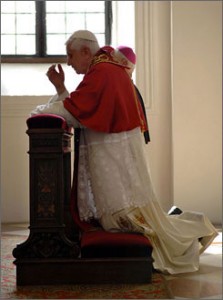
General Intention:Â For all teachers, that they may convey love in truth and educate in authentic moral and spiritual values.
Missionary Intention:Â That the Christian communities spread throughout the Asian continent may proclaim the Gospel with fervor, bearing witness to beauty with the joy of the faith.
Tags: catholic, catholic podcast, catholic prayer, cathollc spirituality, holy father intentions
This entry was posted on Thursday, September 1st, 2011 at 12:02 am
You can follow any responses to this entry through the RSS 2.0 feed.
“He laid his hands on every one and healed them”
[powerpress=”daily-scripture”]
an excerpt from today’s reflection by Don Schwager:
When Jesus and the disciples sought a lonely place to regroup and rest, they found instead a crowd waiting for them! Did they resent this intrusion on their hard-earned need for privacy and refreshment? Jesus certainly didn’t but welcomed them with open-arms. Jesus put human need ahead of everything else. His compassion showed the depths of God’s love and concern for all who are truly needy. Jesus gave the people the word of God and he healed them physically as well as spiritually. We can never intrude upon God nor exhaust his generosity and kindness. He is ever ready to give to those who earnestly seek him out. Do you allow Jesus to be the Lord and Healer in your personal life, family, and community? Approach him with expectant faith. God’s healing power restores us not only to health but to active service and care of others. There is no trouble he does not want to help us with and there is no bondage he can’t set us free from. Do you take your troubles to him with expectant faith that he will help you?
“Lord Jesus Christ, you have all power to heal and to deliver. There is no trouble nor bondage you cannot overcome. Set me free to serve you joyfully and to love and serve others generously. May nothing hinder me from giving myself wholly to you and to your service.”
for the full reflection visit : Daily Reading and Meditation
Tags: catholic, catholic podcast, catholic prayer, cathollc spirituality, don schwager, gospel of luke
This entry was posted on Wednesday, August 31st, 2011 at 8:01 am
You can follow any responses to this entry through the RSS 2.0 feed.
Leave it to Vatican Radio to give us a fascinating interview with Fr. Twomey on the orgins and the results of this summer’s “Schuelerkreis”. The “New Evangelization”…what does it really mean?  Believe it or not…in a real way…it’s all about humility (gotta luv it)!
[powerpress]
From Vatican Radio
What does New Evangelisation actually mean? How does the Church – universally and locally – envision its concrete application? Is there any ‘master plan’? And what did they really talk about at the Ratzinger Summer School? These are some of the questions that Emer McCarthy put to Fr. Vincent Twomey SVD., Professor emeritus of Moral Theology at Maynooth seminary in Ireland, and one of the founding members of the Ratzinger Schuelerkreis.
Recently convened for their annual meeting in Castel Gandolfo (Aug. 25-28), the group of 40 former theology and philosophy students of then Professor Joseph Ratzinger were given the task of discussing this sometimes ‘nebulous’ term. Added to their ranks were academics who have chosen to study the thought and writings of Joseph Ratzinger – a suggestion first put forward by Fr. Twomey himself – creating a veritable ‘think-tank’, with some surprising results.
Fr. Twomey speaks of how the concept of New Evangelisation is a thread that runs throughout the teaching and writing of Pope Benedict XVI, then Professor Ratzinger. He brings us back to their first meeting over 40 years ago, when as a young Irish missionary priest, he sought out the ‘promising and brilliant theologian’ in his ‘simple’ Bavarian home to ask to study under him. Fr. Twomey takes us on a journey from the Münster and Tübingen years, through the establishment of Ratzinger’s first ‘Doctoral colloquium’, to the Regensburg years and finally, Rome. He speaks about why the New Evangelisation calls for ‘God’s humility’ and why – contrary to popular belief – secularisation is not wholly negative
Tags: catholic, catholic podcast, catholic prayer, cathollc spirituality, new evangelization, pope benedict xvi
This entry was posted on Tuesday, August 30th, 2011 at 3:30 pm
You can follow any responses to this entry through the RSS 2.0 feed.
“His word was with authority”
[powerpress=”daily-scripture”]
an excerpt from today’s reflection by Don Schwager:
When you read or hear the word of God how do you respond to it? Do you hear it with indifference, selective submission, or with the full assent of faith and obedience? When Jesus taught he spoke with authority. He spoke the word of God as no one had spoken it before. When the Rabbis taught they supported their statements with quotes from other authorities. The prophets spoke with delegated authority – Thus says the Lord. When Jesus spoke he needed no authorities to back his statements. He was authority incarnate – the Word of God made flesh. When he spoke, God spoke. When he commanded even the demons obeyed. If demons, the fallen angels, believe in the power and authority of the Son of God, how much more should we believe in the power and authority of the gospel – the good news of Jesus Christ – with the full assent of our minds and hearts and entrust our lives to the Lord Jesus Christ? If we approach God’s word submissively, with an eagerness to do everything the Lord desires, we are in a much better position to learn what God wants to teach us through his word. Are you eager to be taught by the Lord and to conform your life according to his word?
 “Lord Jesus, your word is power and life. May I never doubt your saving love and mercy, and the power of your word to bring healing, restoration, and freedom from sin and oppression.”
for the full reflection visit : Daily Reading and Meditation
Tags: catholic, catholic podcast, catholic prayer, cathollc spirituality, don schwager, gospel of luke
This entry was posted on Tuesday, August 30th, 2011 at 5:34 am
You can follow any responses to this entry through the RSS 2.0 feed.





